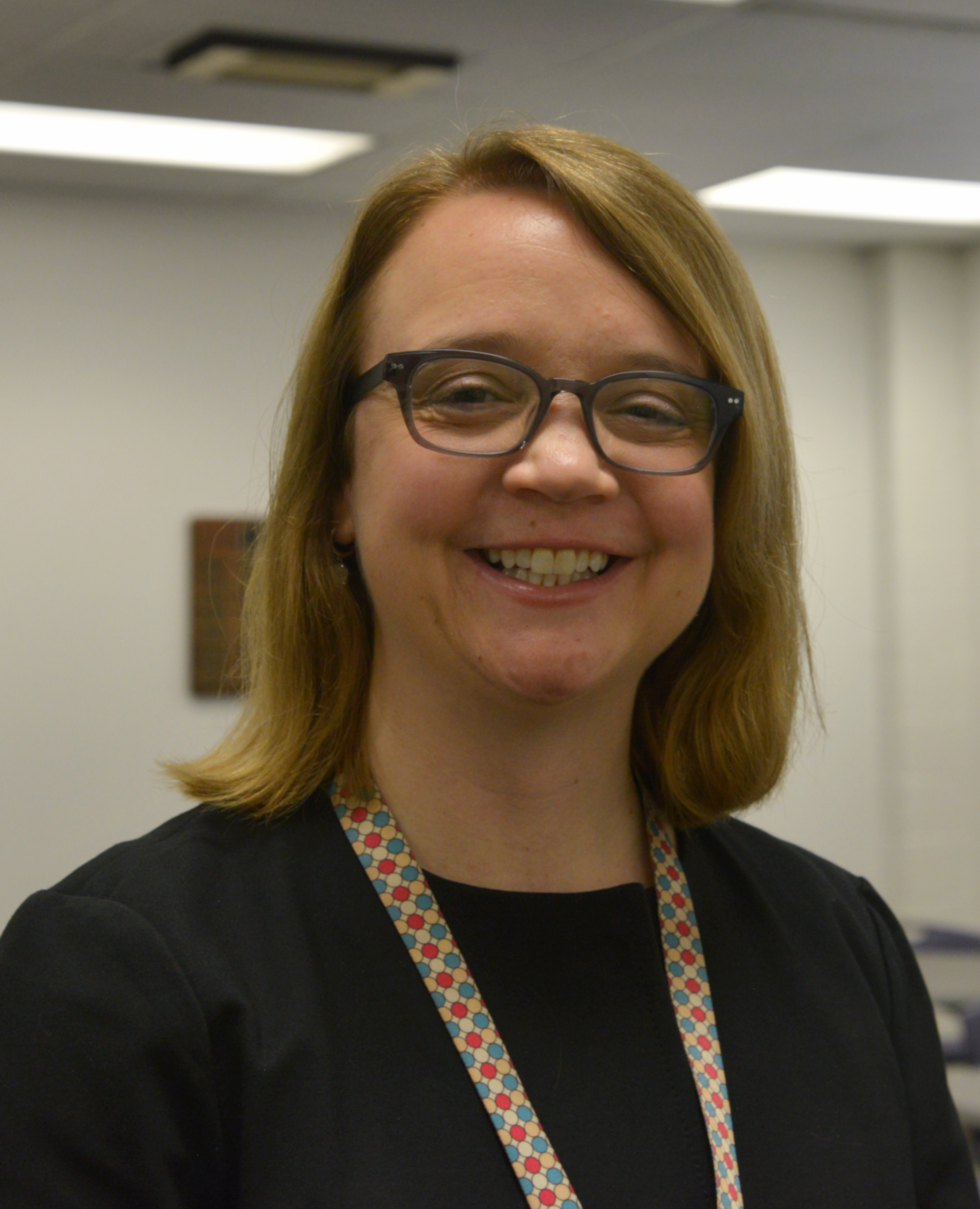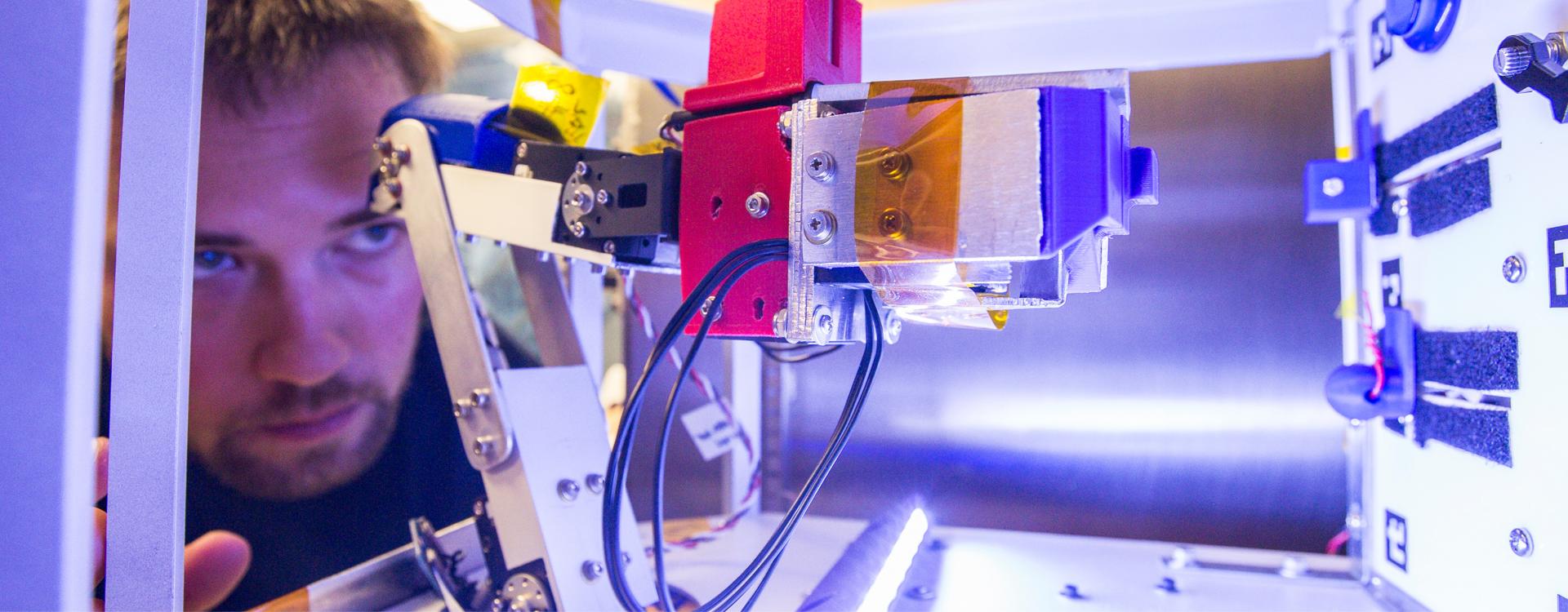Q&A: Talking with Gabby McCutchen as learning center at Durham Tech approaches 20th anniversary
 The Teaching-Learning Center, or TLC, at Durham Technical Community College was established in 1998 to support excellence in teaching and learning for faculty members. The TLC achieves its mission by providing activities and resources that give faculty meaningful opportunities to connect and collaborate, all in the pursuit of improving teaching and learning. Gabby McCutchen, Dean and Department Head of Student Engagement and Transitions at Durham Tech, has operated the TLC since 2008.
The Teaching-Learning Center, or TLC, at Durham Technical Community College was established in 1998 to support excellence in teaching and learning for faculty members. The TLC achieves its mission by providing activities and resources that give faculty meaningful opportunities to connect and collaborate, all in the pursuit of improving teaching and learning. Gabby McCutchen, Dean and Department Head of Student Engagement and Transitions at Durham Tech, has operated the TLC since 2008.
The TLC will host a Teaching-Learning Conference on March 6 for Durham Tech faculty and staff from noon to 4:45 p.m. The conference will feature two keynote speakers, Kelly Hogan and Viji Sathy, award-winning professors at the University of North Carolina at Chapel Hill. Please register online by Friday, February 23 to participate.
Q: What is the mission of the TLC?
A: Our overall mission is to enhance teaching and learning excellence at Durham Tech. We encourage, offer, and sponsor faculty development activities that lead to meaningful student learning and renewal of college faculty.
Q: How does the TLC decide what classes it will offer?
A: Some ideas are generated directly from faculty. They’ll either come to me or Lance Lee, who is the Coordinator for Faculty Development, and tell us they’ve got a great idea and they’d love to share it as a TLC presentation. Those are the easiest ones to say, “Yes, we’d love to get you on the calendar!” We also collaborate a lot with people in other departments, like Karen McPhaul and her team with Instructional Technologies to make sure that we’re offering a lot of instructional technology activities on the TLC calendar. They have a good gauge of what kinds of technology faculty are interested in and asking questions about so that leads us in the right direction. At the end of every TLC activity, we ask participants to fill out the feedback form, and the last question is “What other topics would you like the TLC to address?” So a lot of the ideas come from the needs recognized at Durham Tech.
Q: How have you seen the TLC change in its approach over the years?
A: We’ve always done weekly workshops where you drop in, learn what you can learn, and then leave, which is the history of the TLC, and we’ll always do that. But in the last 10 years, we’ve also offered some longitudinal programming and activities that span over semesters like Faculty/Staff Interest Groups, or FIGS, which is a two semester commitment where faculty work on teams about a topic that is of interest to them. We’re also offering more programming directed at adjunct faculty. We have the Adjunct Teaching Institute which is a program the Durham Tech Foundation supports by providing a $50 stipend for adjunct faculty to attend two TLC activities per semester. We frequently have programs in place for adjuncts and new faculty so that we’re more inclusive of our part-time faculty. We’ve also brought back faculty mentoring, which is open to both adjunct and full-time faculty. It’s a nice way for people to get know each other and help new instructors learn about Durham Tech. They offer a lot of mentoring around advising or committee work or things that are outside the teaching realm. The mentors often report back what they learned from the mentees so it’s a real reciprocal relationship.
Q: What is the selection process for guest speakers?
A: We take referrals from faculty who have seen someone at a conference that they thought was especially good. So we’ll do our own research and confirm it’s a legitimate person, and they have expertise on a certain topic. When we were planning the TLC conference on March 6, the TLC advisory committee looked at different suggestions we all brought to the table, and we talked about what topics would be most relevant for the widest group of faculty. We wanted something that would be engaging for everybody. We also looked at the potential speakers’ YouTube videos to see what their presentation styles are like and how engaging they are, etc. I also know people across the state that do this sort of work at other universities, so I have a growing network I can ask if we’re in need of speakers on a certain topic.
Q: What’s your favorite TLC activity?
A: My favorite might be the FIGs because we see each other for a whole academic year so the relationships grow and we get to know each other really well. I get to learn from them, see the research they’ve done, the strategies they’ve implemented and what those results are. It’s really collaborative. The weekly sessions are great too, but a lot of that depends on who’s going to show up. With the FIGs, I know who’s going to show up because we’ve all made a commitment to each other that we’ll be here for the whole year. Another favorite would be the Scholarship of Teaching and Learning, or SoTL, but that’s a much more solitary endeavor. The faculty who participate in SoTL conduct their own research, implement the changes in their classroom, and I don’t always know the full scope of what they’ve done until the end. We do a New Faculty Orientation, which is also one of my favorites. I get to know people when they walk in the door, and Dr. Ingram comes and says a welcome message every year.
Q: How have you seen the TLC impact faculty?
A: This is a question I always want to be able to quantify, but I can’t always. I can tell you that we have a really strong cadre of repeat attendees, they come every time we run a workshop or activity. I think for those “power users” there are real opportunities for benefit. Then there are other faculty that drop in once per year so it’s hard to gauge the impact, but they always give positive feedback. I think there’s something to be said about the comradery, just being with other faculty and talking about students and talking about teaching and learning. I think that’s almost as beneficial as learning a new skill or technique they can use in the classroom.
Q: What’s the biggest challenge?
A: Getting people to come! Faculty are so busy, it’s hard to be a priority on everyone’s calendar. We see greater participation from some departments than others, so we try to go to those departments directly and find out what they need and what would be of interest to them. The TLC is really for everyone. We’ve got great things going on here, and we want more people to participate.
Q: How does it feel to know you’re approaching the TLC’s 20 year anniversary?
A: I’m really proud of it. I’m really proud of the vibrancy of the TLC. It’s not just a room, and it’s not just a website. It’s groups of people doing real work. We also publish a journal every other year, Learning Matters, so that’s a nice way for people who don’t have time to come to a presentation, to be able to read and learn from each other based on the articles submitted there. There’s really something for everyone, for new instructors and seasoned instructors.
Q: What’s next for the TLC?
A: We have so many programs going on now, we have entered a period of sustaining and evaluating them. Lance and I also plan to strengthen our existing connections with our counterparts at area universities and look for opportunities to collaborate with them. After the TLC Conference, we’ll turn our immediate attention to scheduling Fall 2018 programming and preparing to publish the 8th volume of Learning Matters. It’s never ending! We are also looking forward to being able to live stream TLC activities in the coming months, giving our colleagues at the Orange County Campus and Northern Durham Center the chance to tune in remotely to participate.
Register by Feb. 23 for the Teaching-Learning Conference on March 6.

